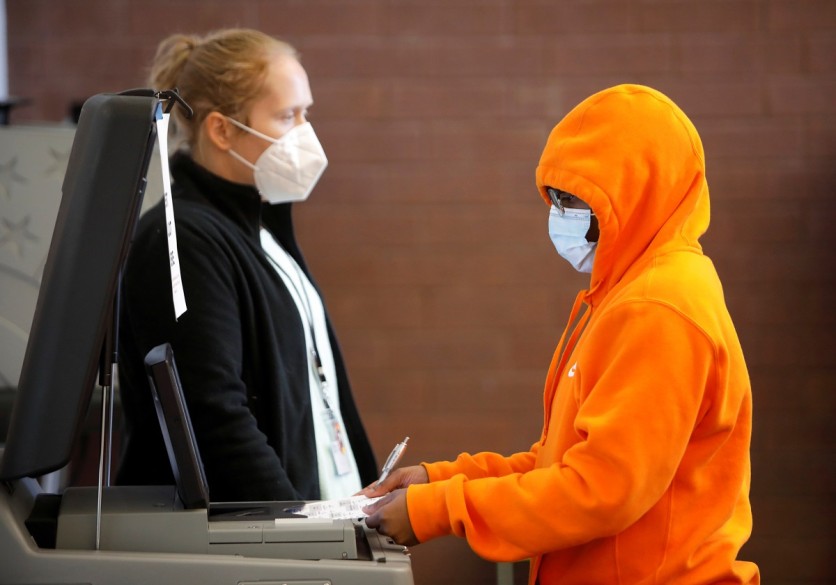As millions of Americans went out to cast their votes on Monday, November 3, security officials worked round the clock to ensure the US presidential election is secured against any attempt of cyberattacks.
Department of Homeland Security Acting Secretary Chad Wolf said during a press briefing that there were "no indications that a foreign actor has succeeded in compromising or affecting the actual votes cast in this election," according to a Recode report. He added that cybersecurity officials were on high alert throughout the elections.

Are voting machines safe?
There were reports of voting machines not working at some poll sites, which caused long lines and delays. However, having technical issues on voting machines does not necessarily mean cyberattacks.
Although security researchers demonstrated that hacking of voting machines is technically possible, Boards of Elections received no report of any attack. However, there are verified reports of malfunctioning machines or misprogrammed scanners, but there was nothing related to a cyberattack .
Ideally, everything works and runs smoothly. However, since we are far from having a perfect system, machines could have glitches while humans make mistakes. Nevertheless, America voting system is highly desired by cybercriminals, so the possibility remains.
Here's how voting machines work
The U.S. elections use paper, envelope openers, and high-speed scanners. Voters may cast their votes in person or send it by mail while voting machines are used to count these votes.
Douglas W. Jones, a University of Iowa computer scientist and co-author of the book Broken Ballots explained how voting machines work in an interview with Scientific American.

From the mechanical lever and punch card voting machines that the United Stated already got rid of, the country is now using optical scan voting machines, which are similar to test scoring machines. These are currently widely-used in which voters mark circles next to the candidate names on the ballot.
Another type of machines being used now are direct-recording electronic voting machines, which were first deployed in Illinois in the 1970s. These are widely used in 2002 after the passing of Help America Vote Act. While this direct-recording electronic voting machines use advanced technology, Jones noted that "they were extraordinarily problematic for security reasons."
Electronic voting machines problems
The primary concern on direct-recording voting machines is that it is completely impossible to audit these machines. They do not have any auditable record of the vote counts, so we are left to completely trusting the programmers, which was the real problem. However, since the U.S. elections are done with votes recorded on paper ballots, there is something left to audit - the ballots.
With the technologies being used in the elections, the public concerns mostly about the hacking threats. However, Jones said that the biggest threat is not really the cybercriminal, but "the fact that there are lots of perfectly honest normal people making errors." One of the usual errors is having a ballot printed with the candidates in one order while the scanner is programming with a different order of candidates. This happened in Iowa in 2006 when results were highly irrational. Thus, election officials did a manual counting, which completely resolved the issue. Good thing they had paper ballots.
Meanwhile, to protect the systems against unintentional and malicious errors, Jones noted that election officials would need to check the election's results. After all, the election does not really end on the Election Day as the counting continues until the last mailed ballot after the deadline is counted.
Related article: Facebook Claims Fake Pages From China Try to Interrupt US Election But Didn't Link Them to Chinese Government
This is owned by Tech Times
Written by CJ Robles
ⓒ 2025 TECHTIMES.com All rights reserved. Do not reproduce without permission.




